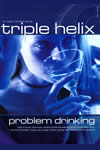Delegates at the BMA annual representative meeting in Manchester on 30 June 2005 voted 58% to 42% against legalising euthanasia but 53% to 47% in favour of adopting a neutral position, reversing a policy of opposition that had stood for 173 years.
The euthanasia motion was passed by 93 votes to 82 on the last day of conference when many delegates had returned home. Michael Wilks, who is known personally to support a change in the law, chaired the representative meeting that staged the vote, the agenda committee that framed the motions to be voted on, and also the BMA ethics committee, which provided ‘expert’ input. Another BMA Council and Ethics committee member John Chisholm spoke to the neutral motion. Despite the fact that a majority of doctors remain opposed to assisted dying, and that medical opposition has actually intensified in recent years,[1,2] it is now official BMA policy that ‘the question of the criminal law in relation to assisted dying is primarily a matter for society and for Parliament. The BMA should not oppose legislation which alters the criminal law but should press for robust safeguards both for patients and for doctors who do not wish to be involved in such procedures.’
On the same day delegates rejected by 77% to 23% a motion calling for a lowering of the abortion limit for healthy babies from 24 weeks. A BMA briefing paper on abortion given to delegates claimed to give ‘accurate factual information’ but in fact quoted statistics about premature baby survival that were ten years out of date. The EPICure study,[3] which also featured on the recent Panorama programme Miracle baby grows up, gave survival rates of 11% at 23 weeks and 26% at 24 weeks from a multicentre population-based study in 1995.
Junior doctor May Moonan challenged the evidence quoting a well-publicised 2004 Minnesota study [4] showing consistent year-onyear improvement and survival rates after neonatal intensive care of 66% at 23 weeks of gestation and 81% at 24 weeks of gestation for the period 1996-2000. But senior doctors John Chisholm and Wendy Savage then further misled delegates by flatly denying from the platform that there had been any change in survival rates, without producing any evidence whatsoever to back up their claims.
The whole performance raised serious questions about corporate governance, professionalism and integrity at the BMA – but also highlighted a quantum shift in views held by doctors’ leaders. The Hippocratic Oath says, ‘I will give no deadly medicine to anyone if asked nor suggest such counsel, nor in like manner will I give a woman a pessary to produce abortion.’ In 1947 the BMA Council classified the ‘deliberate killing of infirm or feeble-minded patients and of children in hospitals and asylums’ as a ‘war crime’ and affirmed that, ‘although there have been many changes in medicine, the spirit of the Hippocratic Oath cannot change’. It further stated that ‘ co-operation in the destruction of life by murder, suicide and abortion’ was ‘the greatest crime’.[5] How times have changed.
Many Christians will be angry that a handful of delegates can make decisions for 133,000 BMA members. But 30 June was a cruel reminder that BMA policy is shaped by those who attend meetings and get into positions of influence on key committees. Brave voices spoke out against the new orthodoxy; but when votes were counted it was clear that the apathy of those with more conservative views had played into the hands of the new liberal elite.
Doctors in this country have already shed the blood of 6 million unborn children since 1967 and will shed a lot more if, as a result of this shift in medical opinion, euthanasia is legalised. We all share the responsibility to do something about it. Rescue those being led away to death; hold back those staggering toward slaughter. If you say, ‘But we knew nothing about this,’ does not he who weighs the heart perceive it? Does not he who guards your life know it? Will he not repay each person according to what he has done? (Proverbs 24:11-12)
































